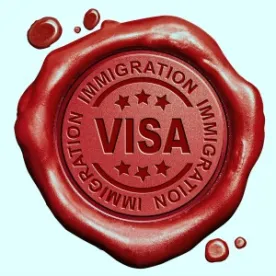The Executive Order (EO) issued by the President on January 27, 2017, titled “Protecting the Nation from Foreign Terrorist Entry into the United States,” is currently subject to a Temporary Restraining Order (TRO) prohibiting all agencies of the United States Government (the “Government”) from enforcing key provisions of the EO. On February 3, 2017, the United States District Court for the Western District of Washington issued a nationwide TRO prohibiting, in part, the Government from enforcing the 90-day suspension of travel into the United States of individuals who are nationals of Iran, Iraq, Libya, Somalia, Sudan, Syria and Yemen. On February 9, 2017, the Ninth Circuit Court of Appeals in a unanimous three-judge decision upheld the TRO and denied the Government’s emergency motion for a stay.
In response to the TRO issued on February 3, 2017, Government agencies have taken the following actions which remain in effect as of February 10, 2017:
United States Department of State (DOS)
- DOS has confirmed that visas that were provisionally revoked due to the EO are once again valid for travel.
United States Customs and Border Protection (CBP)
- CBP has confirmed that all ports of entry have been instructed to immediately resume inspections of travelers under standard policies and procedures.
- Airlines and terminal operators have been notified to board all passengers without regard to nationality.
- CBP has confirmed that an individual who had his or her visa physically cancelled as a result of the EO will not need to apply for a new visa absent any other issues and will receive an I-193 waiver (Application for Waiver of Passport and/or Visa) upon arrival at a United States port of entry. Airlines have been instructed to contact CBP to receive authorization to permit boarding.
On Friday, January 27, 2017, at 4:30 p.m. EST, the President of the United States signed a broad and vaguely-worded Executive Order (EO) titled “Protecting the Nation from Foreign Terrorist Entry into the United States.” The EO was effective immediately and suspended the entry into the United States of all individuals who are nationals of seven predominately Muslim countries, Iran, Iraq, Libya, Somalia, Sudan, Syria and Yemen, for 90 days. The EO also suspended certain refugee admissions for 120 days and banned Syrian refugee admissions indefinitely. While it has been widely rumored that additional countries will be added to the EO, the Department of State (DOS) on February 2, 2017, announced that there is no current plan to expand the countries included in the EO.
The scope of this client alert relates to employment-based immigration and business travel to the United States and does not address the impact on refugees or other travel.
BUSINESS TRAVELERS IMPACTED BY THE EO
- The EO applies to individuals with passports or other valid travel documents issued from Iran, Iraq, Libya, Somalia, Sudan, Syria and Yemen (Restricted Countries) who are applying for entry into the Unites States at any port of entry – air, land or sea.
- The Department of Homeland Security (DHS) and DOS may grant waivers on a case-by-case basis if an individual’s admission is deemed to be in the national interest and if the individual does not pose a national security threat.
BUSINESS TRAVELERS NOT IMPACTED BY THE EO
- Citizens holding passports from any country not designated in the EO are not subject to the EO.Travelers requesting admission are treated as a “national” according to the travel document they present to Customs and Border Protection (CBP).Thus, a Canadian citizen born in Iran who submits a Canadian passport for admission is treated as a Canadian citizen and not a national of Iran for purposes of the EO.
- United States citizens born in one of the designated countries are not subject to the EO.
- Unites States Permanent Residents (Green Card Holders) born in one of the designated countries are not subject to the EO.
- Dual Citizens with a valid United States immigrant or non-immigrant visa in a passport issued by a country other than one of the Restricted Countries are not subject to the EO.
- Landed immigrants of Canada who hold a passport from a restricted country and have a valid United States immigrant or non-immigrant visa are not subject to the EO if the travel originates in Canada and entry is through a land border or preclearance location.
VISAS AND VISA ISSUANCE
- Effective with the entry of the EO, the DOS provisionally revoked all valid non-immigrant and immigrant United States visas for nationals of the Restricted Countries with the exception of A-1, A-2, G-1, G-2, G-3, NATO, C-2 and certain diplomatic visas.
- Exemptions to the visa revocations may be granted on a case-by-case basis by the DOS or DHS when deemed in the national interest.
- DOS can issue visas to otherwise eligible visa applicants born in Restricted Countries who apply with a passport from an unrestricted country.
- F1/J1/M1 visas are provisionally revoked and students/researchers should contact their Designated School Official (DSO) for guidance.
- Landed immigrants of Canada born in a restricted country can apply for immigrant and nonimmigrant visas at a United States Consulate in Canada.
- Dual Citizens born in a restricted country can apply for immigrant and nonimmigrant visas at a United States Consulate abroad with a passport from an unrestricted country.
IMPORTANT INFORMATION FOR ALL BUSINESS TRAVELERS
- Business travelers considering departing or entering the United States should consult with their employer, which in turn should consult with legal counsel as necessary before traveling.
- Rely on United States legal counsel and United States Government websites for reliable information and not news outlets, social media or blogs.
- Check the DHS website for up-to-date information on travel restrictions https://www.cbp.gov/border-security/protecting-nation-foreign-terrorist-entry-united-states.
- ALL international travelers arriving at a United States port of entry are subject to CBP inspection, including the inspection of electronic devices and social media accounts.
- Be prepared for CBP inspection by having all evidence of status in the United States available.
- Green Card Holders should have evidence to show connections to the United States such as documentation to show residence in the United States, family ties and assets in the United States.
- Green Card Holders who are on an extended assignment abroad should obtain a Re-entry Permit.
- Green Card Holders, even if asked by CBP, should not sign or do anything to abandon their Green Card without consulting with legal counsel.





 />i
/>i

